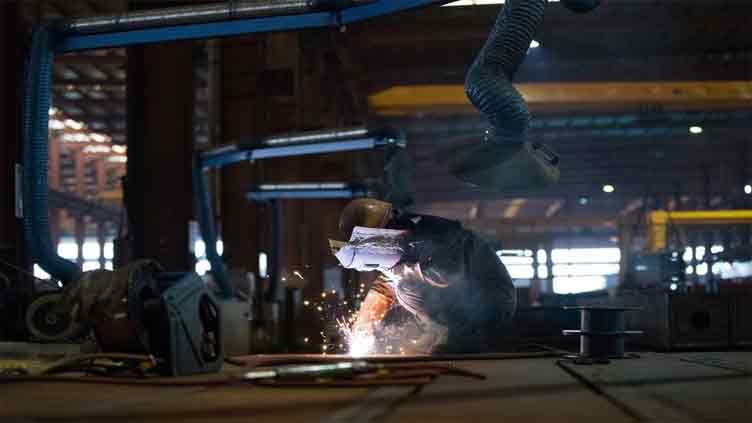China's factory activity extends declines as demand weakens

Business
Analysts have begun downgrading economic forecasts for China's economy for the rest of the year
BEIJING (Reuters) – China's manufacturing activity contracted for a third straight month in June, albeit at a slower pace, an official factory survey showed on Friday, as pressure builds for policymakers to release more stimulus to shore up weak demand.
The world's second-largest economy grew faster than expected in the first quarter largely due to robust services consumption, but policymakers have been unable to sustain the same momentum in the second quarter.
Services sector activity for June also recorded its weakest reading since China abandoned its strict COVID curbs late last year, data from the National Bureau of Statistics showed.
"Economic momentum is still quite weak in China," said Zhiwei Zhang, president and chief economist at Pinpoint Asset Management in a note. "It is not clear if the weak economic data would push the government to launch aggressive stimulus measures soon," he added.
The official purchasing managers' index (PMI) was at 49.0 from 48.8 in May, staying below the 50-point mark that separates expansion from contraction and in line with forecasts.
The official non-manufacturing PMI fell to 53.2 from 54.50 in May, indicating a slowdown in service sector activity and construction.
Analysts have begun downgrading economic forecasts for China's economy for the rest of the year, after May industrial output and retail sales data missed expectations, a sign the post-pandemic recovery seen in the first quarter was losing steam.
Nomura has been the most bearish, cutting its forecast for growth in China's gross domestic product (GDP) this year to 5.1 per cent from 5.5pc. That downgrade even takes into account the prospect of new stimulus.
The government has set a modest GDP growth target of about 5pc for this year after badly missing its 2022 goal.
China's cabinet this month pledged to promote a sustained economic recovery "in a timely manner".
Addressing a World Economic Forum summit in Tianjin on Tuesday, China's Premier Li Qiang reiterated that Beijing will take steps to boost demand, but stopped short of unveiling any concrete policies.
Sources involved in policy discussions have told Reuters that China will roll out more stimulus measures to support the economy, but concerns over debt and capital flight will keep measures aimed at shoring up weak demand in the consumer and private sectors.
The composite PMI, which includes both manufacturing and non-manufacturing activity, dropped to 52.3 from 52.9.

